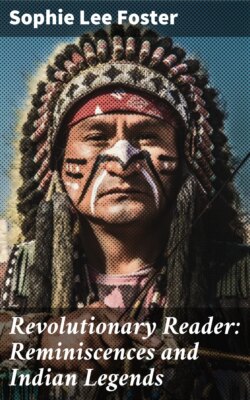Читать книгу Revolutionary Reader: Reminiscences and Indian Legends - Sophie Lee Foster - Страница 20
На сайте Литреса книга снята с продажи.
JAMES EDWARD OGLETHORPE.
ОглавлениеTable of Contents
James Oglethorpe came of a very old family in England. His father, Sir Theophilus, was a soldier under James II, and went into banishment with him. Just before the abdication of James II, James Oglethorpe, the seventh child and fourth son, was born. At sixteen he entered the University at Oxford, when he was twenty-two, entered the British Army as Ensign, and was soon made Lieutenant of the Queen's Life Guards. His soldier life was spent largely on the continent. He became heir to the estate in Surrey and was shortly after elected to the British Parliament, of which body he remained a member for thirty-two years. He was an active member of the House of Commons, a Deputy Governor of the Royal African Society and a gentleman of high position and independent means, and withal a man of genuine piety. He conceived the plan of establishing a colony in America, which should be a refuge for poor people.
The following description of Oglethorpe is by Rev. Thomas B. Gregory:
"February 12, 1733, Oglethorpe and his Colonists scaled the Yamacraw bluffs on the Savannah River and began laying the foundations of the State of Georgia.
The Empire State of the South had its origin in the noblest impulses that swell the human heart. Its founder, the accomplished and philanthropic Oglethorpe, witnessing about him in the old world the inhumanity of man to man, seeing the prisons full of impecunious debtors, and the highways thronged with the victims of religious fanaticism and spite, resolved that he would find in the new world an asylum for the unfortunate ones where they should be no more oppressed by the rich or dragooned by the bigoted.
The colony started out beautifully. The men who had been pining in English jails because they could not pay the exactions of their hard-hearted creditors, and the Salzburgers and others, who, in Austria and Germany, had been made to feel the terrors of religious fanaticism, were glad to be free, and they were only too willing to accept the founder's will that there would be no slavery in Georgia. The institution got a foothold much later on, but it was not the fault of the original colonists.
Beautiful, too, were the initial relationships between the colonists and the red men. Old To-mo-chi-chi, the Chief of the surrounding Indians, presenting Oglethorpe with a Buffalo skin ornamented with the picture of an eagle, said to him: 'I give you this which I want you to accept. The eagle means speed and the buffalo strength. The English are swift as the bird and strong as the beast, since like the one, they flew over the seas to the uttermost parts of the earth, and, like the other, they are strong and nothing can resist them. The feathers of the eagle are soft and means love; the buffalo skin is warm and means protection. Then I hope the English will love and protect our little families.' Alas! the time was to come when the white man would forget To-mo-chi-chi's present and the spirit with which it was made.
[back]
THE MONUMENT TO GENERAL OGLETHORPE, FOUNDER OF THE COLONY OF GEORGIA, IN CHIPPEWA SQUARE, SAVANNAH.
In 1743 Oglethorpe left Georgia forever, after having given it the best that there was in his head and heart for ten years. In 1752 Georgia became a royal province, and remained such until the breaking out of the Revolution in 1775, through which she helped her sister colonies to fight their way to victory, when she took her place among the 'old thirteen' free and independent states."
